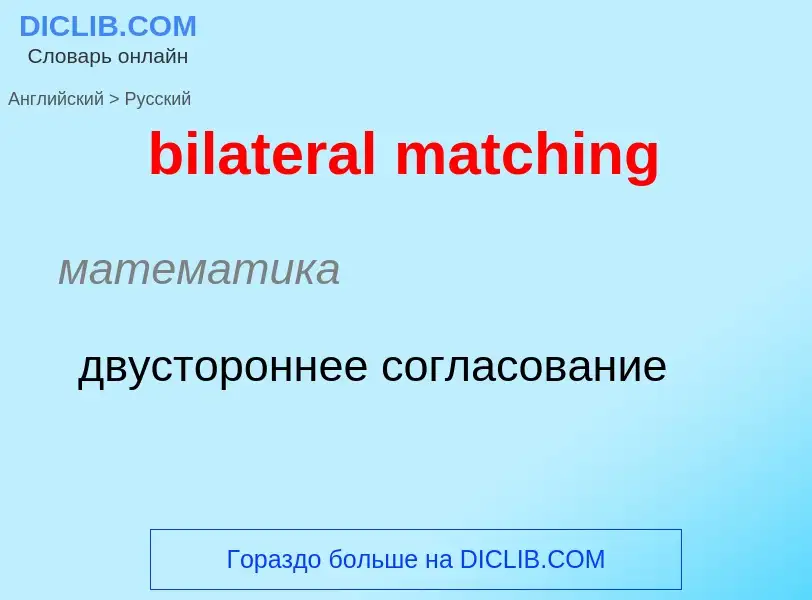Tradução e análise de palavras por inteligência artificial ChatGPT
Nesta página você pode obter uma análise detalhada de uma palavra ou frase, produzida usando a melhor tecnologia de inteligência artificial até o momento:
- como a palavra é usada
- frequência de uso
- é usado com mais frequência na fala oral ou escrita
- opções de tradução de palavras
- exemplos de uso (várias frases com tradução)
- etimologia
bilateral matching - tradução para russo
математика
двустороннее согласование
['mætʃiŋ]
общая лексика
проба на совместимость
перекрёстное типирование
согласовывание
согласующий
сопоставление
сочетать
сравнение
строительное дело
пригонка, подгонка
подбор (напр. полотнищ обоев по рисунку)
совпадение (отверстий и т. п.)
сплачивание (досок, брусков) со шпунтовым соединением
устройство шпунтовых соединений
машиностроение
подгонка
нефтегазовая промышленность
подбор
согласование
Смотрите также
существительное
общая лексика
приведение в соответствие
согласование
пригонка
подбор
соразмерение
балансирование
т. граф. паросочетание (произвольное подмножество попарно несмежных ребер графа)
финансы
(метод нейтрализации ценового и процентного риска, заключающийся в балансировании активов и обязательств по суммам и срокам)
биржевое выражение
сверка (ежедневная сверка всех продаж и покупок на срочной бирже и получение подтверждения продавцов и покупателей по числу и ценам контрактов в каждой сделке)
строительное дело
устройство шпунтового соединения
техника
совпадение (отверстий и т. п.)
Смотрите также
Wikipédia
Bilateralism is the conduct of political, economic, or cultural relations between two sovereign states. It is in contrast to unilateralism or multilateralism, which is activity by a single state or jointly by multiple states, respectively. When states recognize one another as sovereign states and agree to diplomatic relations, they create a bilateral relationship. States with bilateral ties will exchange diplomatic agents such as ambassadors to facilitate dialogues and cooperations.
Economic agreements, such as free trade agreements (FTA) or foreign direct investment (FDI), signed by two states, are a common example of bilateralism. Since most economic agreements are signed according to the specific characteristics of the contracting countries to give preferential treatment to each other, not a generalized principle but a situational differentiation is needed. Thus through bilateralism, states can obtain more tailored agreements and obligations that only apply to particular contracting states. However, the states will face a trade-off because it is more wasteful in transaction costs than the multilateral strategy. In a bilateral strategy, a new contract has to be negotiated for each participant. So it tends to be preferred when transaction costs are low and the member surplus, which corresponds to "producer surplus" in economic terms, is high. Moreover, this will be effective if an influential state wants control over small states from a liberalism perspective, because building a series of bilateral arrangements with small states can increase a state's influence.

